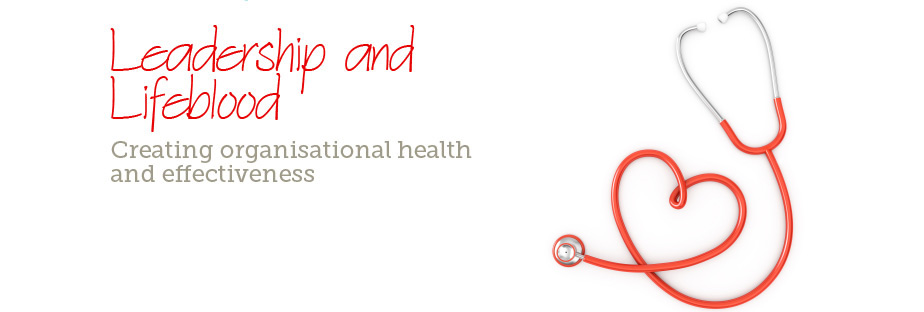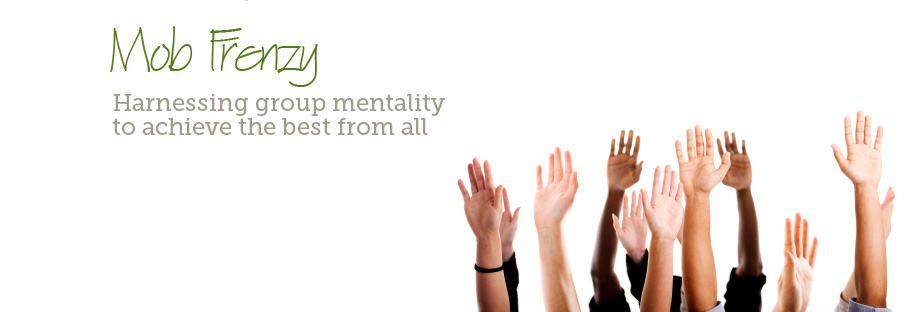‘Morale is at an all-time low!’ This was the message I heard when joining one company, virtually the moment I stepped through the door on my first day.
Time to help!
Sitting down with the team we started to discuss what they meant. Much of what they had to say related to their feelings and emotions. Part of the issue was how they felt valued by the organisations management, but many of the feelings they expressed related to a sense of inner unrest.
They were appealing to management to raise morale, without understanding how they could actually achieve this. As we spoke further, it became apparent that they did not really grasp what ‘morale’ was.
Morale is defined as ‘the state of individual well-being based upon a sense of confidence and usefulness and purpose’, or in other words, people come to work to feel valued and to achieve something worthwhile!
Morale also embraces the sense of individual well-being that flows from personal relationships at work; a collective sense of friendliness, care, and enthusiasm in a team’
The first of these – feeling valued and worthwhile, is definitely a leadership role, by making sure everyone understands how important their contribution is, and how you appreciate their efforts day by day.
The second element is also a leadership role, but its much much more that you as a leader can deliver to your team. Let me explain. Without the right environment, which you can create in terms of how you work with those around you and the example you set, there will never be a true sense of interdependency. It is this very interdependency that everyone in your organisation needs to embrace, fro morale to be ‘on a high’.
Great morale, and sense of ‘well-being’ depends on every single person doing their bit. It is a wholly shared responsibility.
No one person …
As the discussion progressed with my team about ‘improving morale’ I was able to encourage everyone to see that it was their approach, and their attitude towards work and their colleagues, that had a hugely important part to play in ‘improving’ morale. Improving morale requires the leadership team to set the scene, but every player has to play their part for us all to ‘feel good’ about our work life.
How we want to be treated at work, is how we should commit to treating others.
How we treat each other reciprocates in terms of how we feel about ourselves, and about our work.
We treat others with the respect they deserve, and they do likewise – then work is a better place to be!
This is the key to achieving within the team a sense of being ‘on a high’. Great morale depends on how we all value each other, how we all work together to the greater good of not just our organisation, but every single one of us who works for it.
I smile when I read the phrase ‘This is a great place to work!’ It may be but it will only remain great as long as those who work there want it to be.
The really good news is that this is very much within our own ability to improve morale, and to ensure we all love turning up to work. It is right that individual willingness creates the collective well-being, which in turn benefits every individuals feeling of improved personal well-being. It is what can be achieved when everyone makes the effort.
I came across the following which for me captures the essence of improving morale through personal commitment. It is the personal promise everyone in the University of Southern California’s American Football team makes to themselves, and each other:
|
I think that whoever created this charter, and hopefully it was a team collaboration, was inspired!
Adding to the mix
There are additional elements which a leader bring, helping a sense of collective well-being,
Firstly Mission. It is really important everyone understands that ‘they are all in this together’, and we all depend upon each other to achieve success. The mission is created through you; as a leader you need to lead so others can follow. The mission is a focus, whether it is a specific achievement, or ensuring a high standard of customer satisfaction, or some other on-going requirement rooted in delivering an outstanding business.
The result is that people will believe in the cause, and believe in one another’s abilities
Secondly, there are always Quick Wins you can achieve which enables your team to see your personal total commitment to the improvement of a sense of well-being or ‘morale’. People will soon feel put out if they do not have the right tools for the job, or their areas feel neglected. Quick wins usually include, for example, new buckets and mops for cleaners (I have always found cleaning teams a great measure as they reflect the health of a company in terms of how they feel treated and valued!), and redecoration for areas that need freshening up. Not amazing in themselves, but if you care, they will care.
Thirdly and finally you can have a Personal Challenge for everyone. See whether they say to themselves ‘What’s in it for me’ or ‘What can I give of myself’. Once you start to hear the right answer, you will see a greatly improved sense of well-being.
Individuals checklist for improved morale
I want to be treated fairly, and this starts with me treating others equally fairly, as my part of creating a warm family environment where we all belong, everyone matters and everyone cares.
I want to have a clearly defined role at work so I know what I can do to succeed, and also have the opportunity to develop and progress, whilst learning new skills and abilities
I believe I can make a difference, especially when supporting others in meeting the challenges we face. I shall celebrate with pride the success we achieve together.







